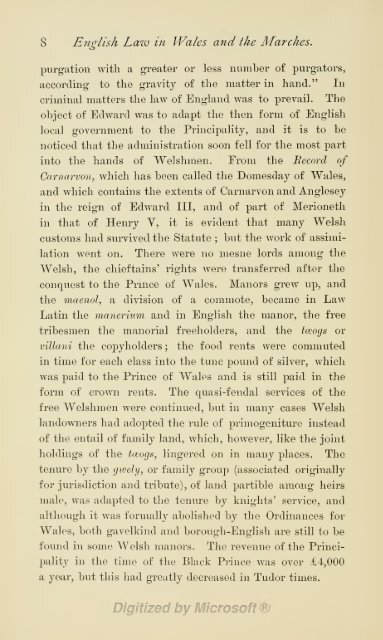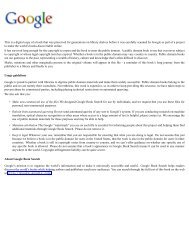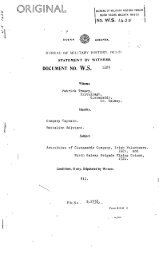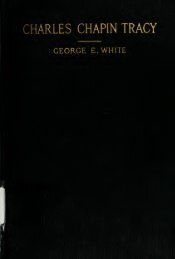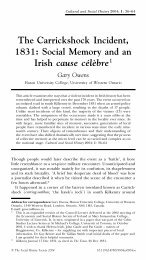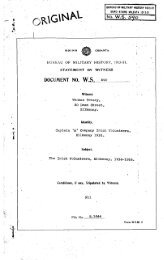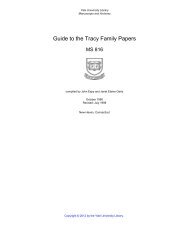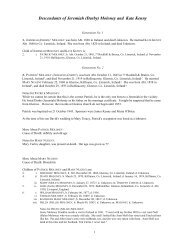Y Cymmrodor. v. XIV. 1901.
Y Cymmrodor. v. XIV. 1901.
Y Cymmrodor. v. XIV. 1901.
Create successful ePaper yourself
Turn your PDF publications into a flip-book with our unique Google optimized e-Paper software.
8 Enplish Law in Wales and the Marches.<br />
"S<br />
purgation with a greater or less number of purgators,<br />
according to the gravity of the matter in hand." In<br />
criminal matters the law of England was to prevail. The<br />
object of Edward was to adapt the then form of English<br />
local government to the Principality, and it is to be<br />
noticed that the administration soon fell for the most part<br />
into the hands of Welshmen. From the Record oj<br />
Carnarvon, which has been called the Domesday of Wales,<br />
and which contains the extents of Carnaiwonand Anglesey<br />
in the reign of Edward III, and of part of Merioneth<br />
in that of Henry V, it is evident that many Welsh<br />
customs had survived the Statute ;<br />
but the work of assimi-<br />
lation went on. There were no mesne lords among the<br />
Welsh, the chieftains' rights were transferred after the<br />
conquest to the Prmce of Wales. Manors grew up, and<br />
the maenol, a division of a commote, became in Law<br />
Latin the manerium and in English the manor, the free<br />
tribesmen the manorial freeholders, and the tceogs or<br />
villani the copyholders ; the food rents were commuted<br />
in time for each class into the tunc pound of silver, which<br />
was paid to the Prince of Wales and is still paid in the<br />
form of crown rents. The quasi-feudal services of the<br />
free Welshmen were continued, but in many cases Welsh<br />
landowners had adopted the rule of primogeniture instead<br />
of the entail of family land, which, however, like the joint<br />
holdings of the tceogs, lingered on in many places. The<br />
tenure by the gwely, or family group (associated originally<br />
for jurisdiction and tribute), of land partible among heirs<br />
male, was adapted to the tenure by knights' service, and<br />
the Ordinances for<br />
altliough it was formally abolished by<br />
Wales, both gavelkind and borough-English are still to be<br />
found in some Welsh manors. The revenue of the Princi-<br />
pality in the time of the Black Prince was over £4,000<br />
a year, but this had greatly decreased in Tudor tiines.


